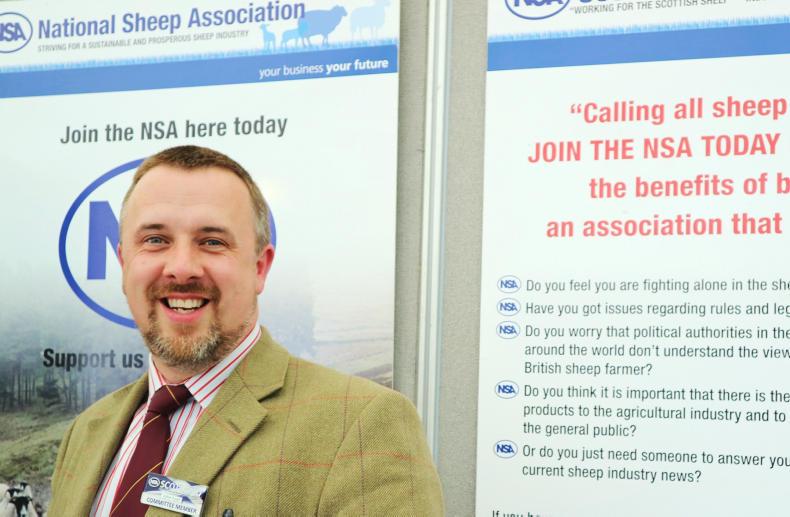My first year as chairman of NSA Scotland is well through and incredibly busy. I never imagined it would be enjoyable all the time and it has been testing, with much frustration early on at very little activity when we know the clock is ticking on decisions to be made and implemented on many things affecting the sheep industry.
The industry itself has seen moods yo-yo, with a poor winter trade seeing an encouraging uplift at the end, a tremendously successful Highland Sheep and a good start to sales. Again we are seeing a more buoyant trade, but only after a period of later store sales that have been remarkably bearish given the weak currency.
This couple of low months will have had a big impact, particularly on hill producers, and we need to find a way to insulate these farmers against such blips and encourage a more even and sustainable trade.
One of my wishes, if I had them, would be some way of sharing the Scottish Food and Drink success out amongst all tiers of sheep production. As I write, New Zealand lamb is on the shelf at £5/kg and ours is £11.50/kg for a similar product, yet Scotch Lamb is only 6p per kg dearer ex-farm deadweight and probably cheaper after NZ shipping, so foreign lamb is being subsidised and ours is squeezed for a premium; to get the public on board we need support from retailers, butchers and possibly government to get behind our produce.
And talking of Government, I would wishfully like both parliaments to strive for the very best for the portfolios, without the constant comparisons and occasional one-upmanship to the other sides. When I was a salesman and canvasser it soon became obvious that the best did not slur the opposition but promoted what they themselves could do well and backed words with assuring actions. If folk want to win votes, diligent attention and action and never using negative detriment of others would be a good tactic.
We have already seen we can work with the Scottish government, with Mr Ewing taking on board our concerns and giving assurances on lynx reintroduction, some leeway in the Scottish upland sheep support scheme (SUSSS) and a full reinstatement of LFASS for 18/19 years. NSA along with other farming organisations are working hard on keeping dialogue going, and are putting a united effort from livestock interests to Westminster, where we can hope Mr Gove will also take on board what we are saying.
Whilst subsidies may drop and producers are urged to be progressive and efficient, it should be remembered Scotland is starting from a low base, but when rural development is taken into account we are very much the poor man of Europe.
Out of Europe we look to New Zealand, when more accurate comparisons in terms of demographics and climate would be Switzerland, Norway, Japan and Iceland, where farm support and produce price are beyond what we could ever imagine within Europe. We must hope that coming talks recognise Scotland’s very low support and get commitment early to a budget we can use to build a thriving industry.
We have much to fear but also a great opportunity to build for the future, and the future is encouraging. This week NSA has a very difficult task in picking its next young ambassadors.
A late rush to the deadline saw an increase in candidates and from the Scots applicants I have seen I do not envy the final judges, as the calibre and enthusiasm of applicants surpassed my expectations. Knowing they may not get the earning opportunities of other industries we are extremely lucky to have a continuing, perhaps growing, stream of young people wanting to put in the hard graft to forge a career in the sheep industry.
Above all, this period of change must remove some of the obstacles put in their way, and allow us all an opportunity to get reward for our graft.





SHARING OPTIONS